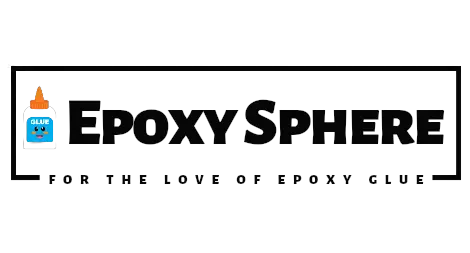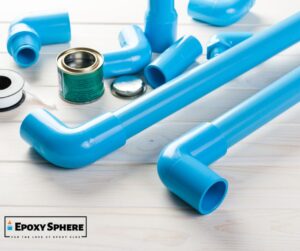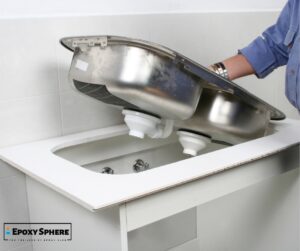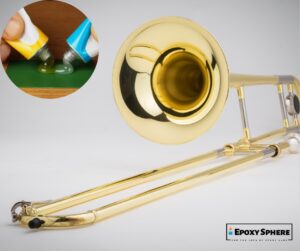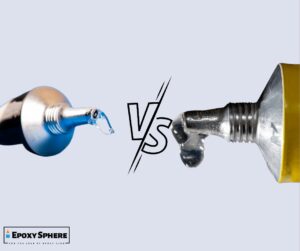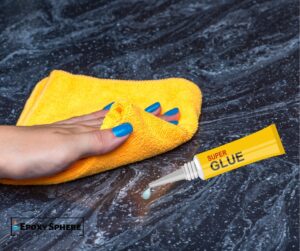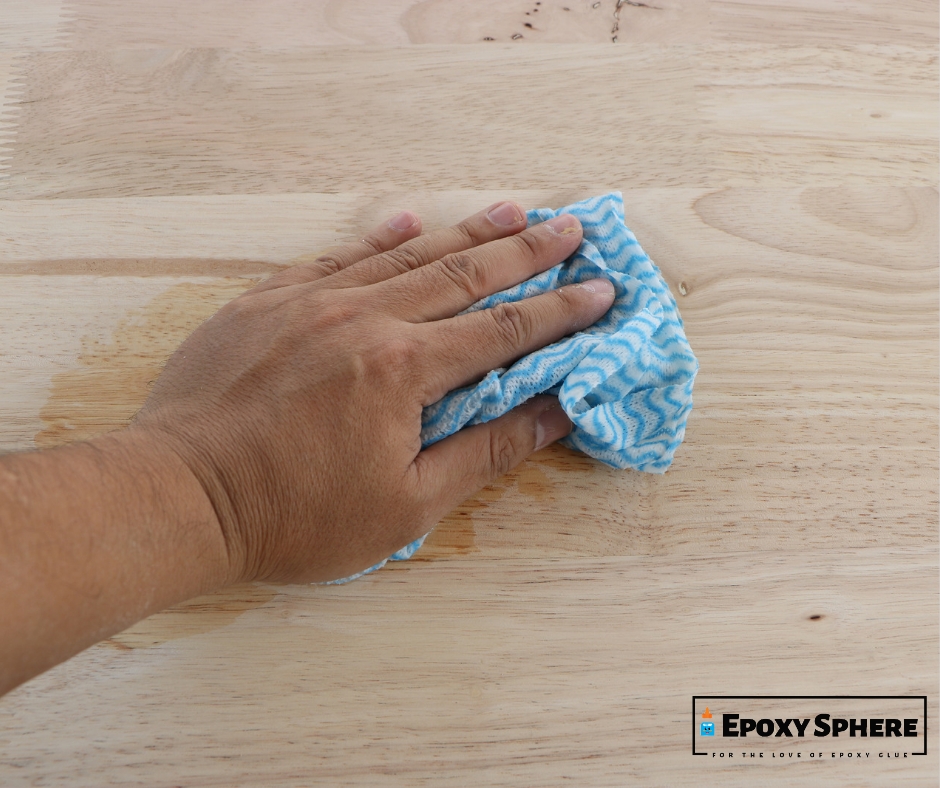
There is nothing more frustrating than getting epoxy glue all over your wood surface. You were maybe trying to repair a small place or thinking that it would be the easiest way to get your cabinets glued back down.
But no, epoxy just doesn’t work that way. There are several reasons to undo wood adhesion. This is why I am going to teach you how to remove epoxy glue from wood.
If you’re one of many coating professionals that have or had a project ruined by contact with gorilla glue, you’ll need to know how to remove epoxy glue from wood.
Want to learn how to remove epoxy glue from wood? I’ll tell you about a few methods that have worked for me. You can use these methods to remove epoxy glue from any wood.

Easy Steps For Removing Epoxy From Wood
Removing epoxy glue from wood requires patience and some special tools. The process should not be rushed or the glue could take longer to remove. If you need to remove epoxy glue from wood quickly, use the following steps:
1. Clean the area
The first step in removing epoxy glue from wood is to clean the area where it was used. Use soap and warm water to thoroughly clean off any residue on your hands or body before you handle anything else related to removing the epoxy glue from wood.
You must also clean the surface of any remaining residue before using solvent-based products on them because they could cause further damage if not completely removed beforehand.
2. Apply acetone
If you’re trying to remove epoxy glue from wood, use a solvent like acetone. The solvent will dissolve the epoxy and make it easier to wipe off with a rag.
The solvent will also soften the wood so that you can scrape off any remaining epoxy. If the acetone doesn’t work, try mineral spirits or turpentine.
These solvents are slower at dissolving the epoxy, but they may be better for removing it from plastic or metal surfaces. You may need multiple applications of one or more solvents before all the epoxies are removed from your wood.
3. Scrape off the remaining residue
Once the glue has softened, use a razor blade scraper to scrape off any remaining adhesive residue. If there are still some stubborn spots that won’t come up with scraping alone, soak them again with more acetone and try again.
How Do You Remove Dried Epoxy Glue?
If you’ve got dried epoxy on your hands or clothes, there are several ways that you can remove it without damaging your items or hurting yourself in the process. Here are some of our favorite methods for cleaning up dried epoxy glue:
1. Use soap and water
Most types of epoxy glue will wash off with soap and water, so this is a good first step if you don’t have any other options. This method works best if you wash your hands immediately after handling the glue, but it may not work as well if it has dried on your skin or clothing.
2. Use acetone
Acetone (nail polish remover) can also help remove epoxy glue from skin or clothing. It won’t damage the fabric like some other solvents might, but it should be used carefully because it is flammable and can cause irritation if not applied properly.
3. Try WD-40: WD-40
It is known for being able to loosen stuck parts and make them move more easily again, so it makes sense that spraying some on a dried layer of epoxy glue would help loosen up the bond between the two surfaces. As with any solvent, use caution when using this method since WD-40 is flammable as well as potentially damaging to sensitive fabrics.
Does Vinegar Dissolve Epoxy?
No, vinegar does not dissolve epoxy on its own because it is a mild acid that can be only used to clean many surfaces. It is often used in the kitchen for cleaning dishes, but it also has many other uses.
Vinegar can also be used to dissolve epoxy, which is a type of adhesive. However, vinegar must be used in combination with another solvent to completely dissolve epoxy.
Vinegar is a strong acid, and it can dissolve many materials, including some glues and epoxies. But not all epoxies are created equal. Some types of epoxy are more resistant to acids than others. Vinegar works best on epoxy that has not been baked or cured yet.
This is because once the epoxy is cured, there is nothing that can break down its bonds anymore; they are permanent at this point, so there is no need to try using vinegar on them again later on down the road when they start wearing out and falling apart from being used over time.
Does Rubbing Alcohol Remove Epoxy?
Yes, rubbing alcohol removes epoxy because it is a good solvent for removing epoxy, but it’s not as effective as paint thinner or acetone.
Rubbing alcohol has a greater water content than paint thinner and acetone, and thus can take longer to remove epoxy. You may need to apply rubbing alcohol several times to a small area before the epoxy begins to soften.
You can also use rubbing alcohol to clean up any spills or drips of epoxy that got on the floor, even if you don’t want to remove the epoxy entirely.
If you’re trying to remove epoxy from a surface, rub with rubbing alcohol and wipe it away with paper towels or rags until all of the epoxies are gone.
Does Acetone Remove Hardened Epoxy?
Yes, acetone removes hardened epoxy because it is a solvent that dissolves many types of epoxy. It’s also used to remove nail polish and glue.
The acetone will soften the epoxy and allow you to scrape it off with a razor blade or other sharp object. You may need to soak some areas longer than others for all the epoxies to soften up enough to scrape off.
Because of its high volatility (it evaporates quickly), acetone should not be used around heat or open flames, as it may cause an explosion. If you use acetone to remove epoxy, be sure to follow the safety precautions.
Acetone is extremely effective at dissolving many types of glues and adhesives, including epoxy glue. It works quickly, so don’t leave it on the surface for too long before wiping off any residue.
Final Note
These tips will help you remove epoxy glue from wood. If you follow these steps and get the epoxy glue off the wood, do not put re-coat it with varnish or polyurethane. Just clear-coat it and keep the furniture oiled instead.

Hi, This is John Davis. After years of working in the construction industry, I decided to create a website that would provide people with information about glue and its exceptional uses. I hope You find it useful
